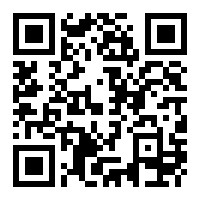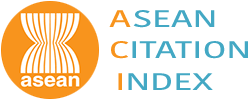Faktor Sosio Ekonomi yang Mempengaruhi Kepatuhan Minum Obat Antihipertensi
Abstract
Hipertensi merupakan penyakit degeneratif yang banyak diderita penduduk dengan kecenderungan meningkat seiring bertambahnya umur. Dengan bertambahnya umur harapan hidup maka dimasa depan hipertensi akan menjadi masalah kesehatan yang serius. Salah satu upaya mengatasi hipertensi adalah dengan minum obat antihipertensi. Keteraturan meminum obat ditentukan oleh kepatuhan. Penelitian ini bertujuan untuk mengelaborasi pengaruh faktor sosio-ekonomi terhadap kepatuhan minum obat. Jenis penelitian adalah studi kualitatif dengan teknik wawancara mendalam. Informan adalah penderita hipertensi yang tinggal di wilayah kerja Puskesmas Beji Kota Depok, berjumlah 8 orang meliputi kategori lansia/non lansia dan laki-laki/perempuan. Wawancara dilakukan di rumah informan pada minggu pertama dan kedua Juni 2007. Rekaman wawancara dibuat transkrip dan dianalisis dengan content analysis. Hasil penelitian menunjukkan bahwa sikap patuh dan tidak patuh dalam berobat bisa muncul saling bergantian. Seluruh informan, selain mengkonsumsi obat modern, ternyata juga minum obat tradisional dari beragam tumbuhan obat dengan beragam cara membuatnya. Faktor motivasi berperan penting dalam kepatuhan minum obat. Motivasi positif memiliki efek terhadap kepatuhan minum obat yang lebih kuat dibandingkan dengan motivasi negatif. Sikap caring anggota keluarga juga berperan penting dalam kepatuhan minum obat. Berdasarkan hasil penelitian disarankan agar tenaga medis dan paramedis memotivasi anggota keluarga penderita hipertensi sebagai motivator minum obat, melakukan studi khasiat obat tradisional yang mencakup kandungan zat aktif obat dancara pembuatan yang tepat serta efek interaksi pemakaian secara bersama-sama obat antihipertensi modern dan tradisional, dan melanjutkan program Askeskin/Jamkesmas untuk mencegah terjadinya unmet need obat antihipertensi pada orang miskin.Kata kunci : Hipertensi, kepatuhan minum obat, obat modern, obat tradisional.AbstractHypertension is a degenerative disease suffered by many people and the trends was raised as the increased of people age. In the future this disease will be a serious health problem due to the increase of life expectancy. There is an effective method to cope the hypertension by taking anti-hypertensive medicine but the regularity of its consumption depends on the compliance. The study objective was to elaborate the influence of socio-economic and cultural factors toward compliance. The research design was qualitative study and the data was gathered by indepth interview. Informen were hypertensive persons who reside in the working area of Beji Health Center, the City of Depok, consist of 8 persons including aged/non aged and male/female. The interview was conductedat the informant house on the first and second of June 2007. Then the transcript of the interview analyzed used the content analysis. Study result showed that the compliance (i.e. complied or not complied) was substitutable. All informen consumed the modern and traditional medicine simultaneously. The traditional one was made from various plants and the way he/she produced it was vary too. We discover the importance of motivation to the compliance. Positive motivation have stronger effect to the compliance as compared to the negative one. Also, family member caring was crucial to the compliance. Depends on the analyses there are some recommendation i.e. any medical and paramedical should suggest the family member of hypertensive patient to be a motivator, conducteda research to comprehend the benefit of traditional medicine including the active substance and the method of produced it effectively and the interaction effects of the use of modern and traditional antihypertensive medicine simultaneously, and to avoid the unmet need to the modern antihypertensivemedicine of the poor the government should continued the health insurance program for the poor (Askeskin/Jamkesmas).Key words : Hypertension, compliance, modern medicine, traditional medicine.
Full Text:
PDFDOI: http://dx.doi.org/10.21109/kesmas.v3i3.228
Refbacks
- There are currently no refbacks.































